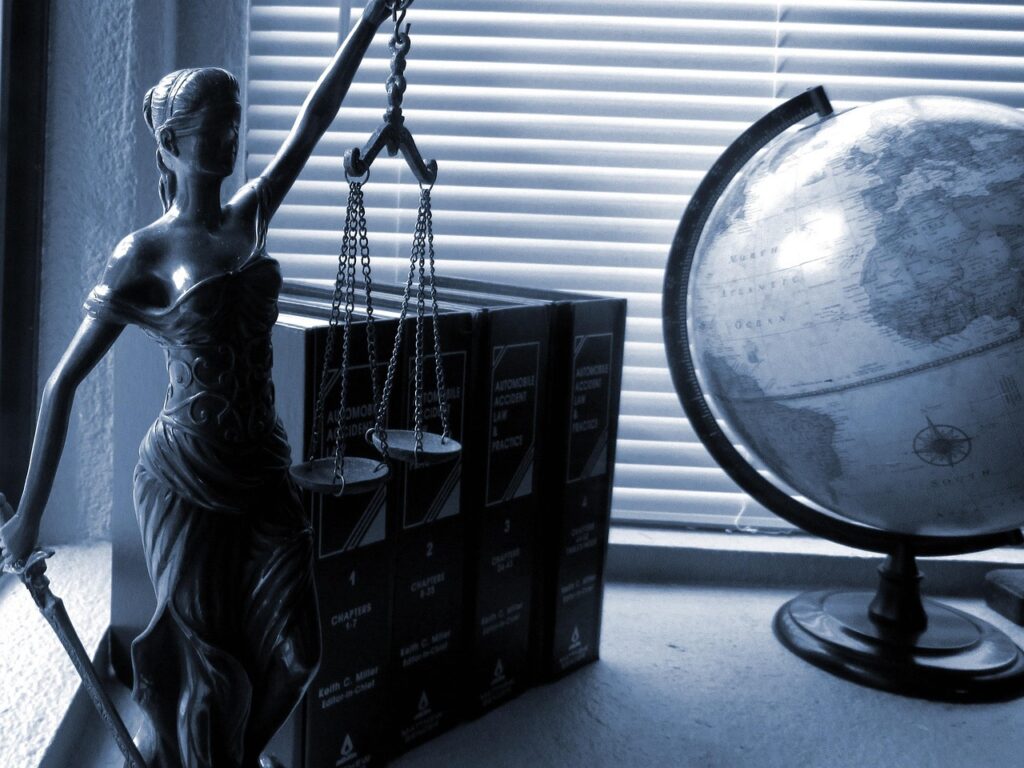Published on: 22nd November 2025
Authored by: Prastuti Singh
Rohilkhand University
COURT: Supreme Court of India
CITATION: AIR 1978 SC 597
BENCH: 7 Judge Constitution Bench
DATE: January 25, 1978
PETITIONER: Maneka Gandhi
RESPONDENT: Union of India
BACKGROUND
Maneka Gandhi , a journalist was given a passport by the government under the Passport Act 1967. After that Government revoke her passport without giving any reason or chance to be heard. The govt. claimed that it was done for ‘public interest’ under section 10(3)(c) of the act.
She felt that this was unfair and filed a case in the Supreme Court under Article 32 saying her Fundamental Rights are violated.
ISSUES RAISED
- Is travelling abroad part of personal liberty?
- Do government has the right to take away anyone’s personal liberty without proper procedure?
- Should Article 14(equality), 19 (freedom), 21( personal liberty) be read together?
- Do Natural Justice ( right to be heard ) ignored?
ARGUMENTS BY MANEKA GANDHI ( PETITIONER)
- Impounding her passport without a hearing violates Natural Justice.
- The govt. action is arbitrary and violates article 14 (Right to Equality)
- The Right to travel abroad is a part of personal liberty under Article 21.
- The Procedure is not just and fair, hence unconstitutional.
ARGUMENTS BY UNION OF INDIA (RESPONDENT)
- The passport was impounded in Public Interest, the law gives that power to the govt.
- The act gives statutory authority to the Government.
- Fundamental Rights given such as 14, 19 and 21 are distinct and not interlinked.
- Right to travel abroad is not a basic fundamental right.
SUPREME COURT JUDGEMENT
- The court said that the personal liberty under Article 21 includes the Right to travel abroad.
- The court said that the legal process must be just, fair and reasonable.
- The court said that the articles 14, 19 and 21 must be read together to protect individual rights.
- Maneka Gandhi was not given chance to explain her side violated the principle of Natural Justice.
VARIOUS KEY OBSERVATIONS
- Article 21 includes the Right to travel abroad as a part of Personal Liberty.
- The procedure established by law must be fair, just and reasonable not arbitrary or oppressive.
- Articles 14, 19 and 21 are interlinked with each other.
- The principle of Natural Justice is important and considered.
- Right to be heard is an important component of Natural Justice.
VARIOUS DOCTRINE INVOLVED
The “doctrine involved in the Maneka Gandhi vs. Union of India (1978)” case is one of the most transformative in Indian constitutional law. Below are the “key doctrines and legal principles” that were either introduced or significantly developed through this case:
- Doctrine of Due Process of Law (Expanded Interpretation of Article 21
- 1he Supreme Court expanded the interpretation of the phrase “procedure established by law” under “Article 21”.
- Earlier, in the “A.K. Gopalan case (1950)” the Court held that any law passed by the legislature was valid, regardless of how arbitrary or unfair it was.
- But in “Maneka Gandhi” the Court held that “the procedure must be just, fair, and reasonable” not arbitrary, oppressive, or fanciful.
- This brought Indian jurisprudence closer to the American concept of “due process of law.
2. Interrelationship of Fundamental Rights Doctrine
- 1.The Court held that , Articles 14 (equality before law), 19 (freedoms), and 21 (life and liberty) are not isolated but overlapping and interconnected.
- Any law affecting personal liberty must pass the tests of all three Articles.
- This overturned the older approach from Gopalan where each fundamental right was considered separate and independent.
- Doctrine of Natural Justice
- The Court emphasized that natural justice — especially ‘audi alteram partem’(the right to be heard) — is an essential part of any fair procedure.
- Even if a statute does not expressly require a hearing, ‘fairness demands’ that one should be given before depriving someone of their liberty or rights.
- This case reinforced the idea that ‘natural justice is implicit’ in Article 21.
- Doctrine of Non-Arbitrariness
- The judgment laid down that ‘any state action or law must not be arbitrary’as ‘arbitrariness is antithetical to equality’ (Article 14).
- Therefore, a law that is arbitrary would automatically violate Article 14, even if passed by a competent authority.
- This doctrine ensures that laws and administrative actions are tested on the grounds of reasonableness.
5. Living Constitution Doctrine
- 1.The interpretation of fundamental rights was done in a ‘progressive and dynamic way’ showing that the Constitution is ‘not static’.
- The Court affirmed that the Constitution is a ‘living document’ that must evolve with changing times and condition
CONCLUSION
The “Maneka Gandhi judgment” marked a major advancement in India’s constitutional framework. The Supreme Court ruled that “any law affecting a person’s life or liberty must follow a procedure that is fair, reasonable, and non-arbitrary”. It emphasized that the “right to personal liberty” includes the “freedom to travel abroad”, and this right cannot be taken away without giving the person a fair chance to be heard.
The Court also declared that “Articles 14, 19, and 21 are interconnected” and no law can violate one without affecting the others. By rejecting the narrow interpretation of personal liberty given in earlier cases like “A.K. Gopalan”, the Court moved toward a more “progressive and rights-based approach”.
This case strengthened the idea that “natural justice and non-arbitrariness” are essential to any government action, and laid a strong foundation for “protecting individual freedoms” in modern India.




